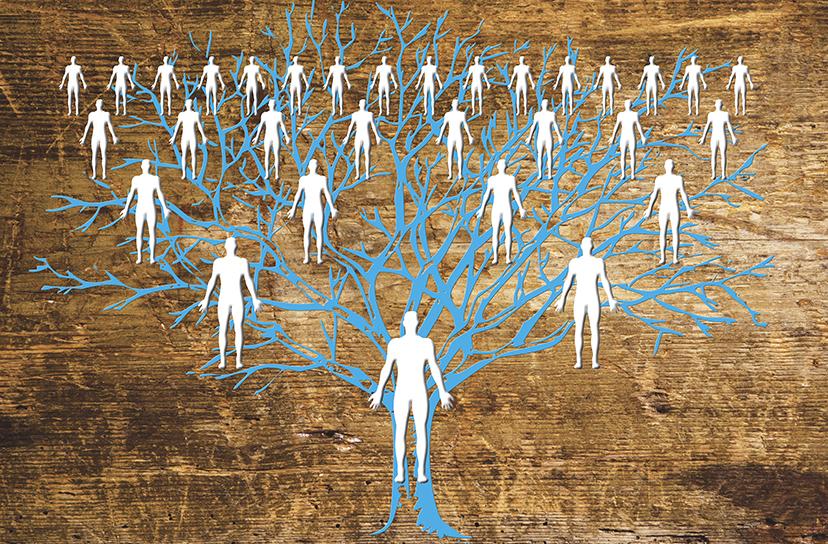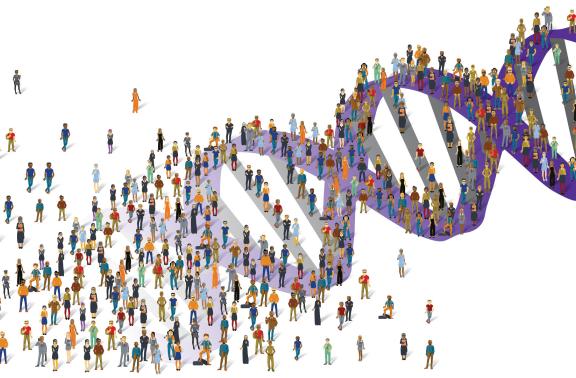
Natural and social scientists differ in their conceptualization and use of race at a critical moment
In a recent contribution to the Yearbook of Physical Anthropology, Jada Benn Torres reviews the “race-as-biology” paradigms that were promulgated early in the discipline and tracks the emergence of the anti-racist stance in contemporary biological anthropology. Upholding this stance, Benn Torres argues, means making a proactive effort to shape scholarly and public narratives about human difference. This effort is particularly important in an era in which interpretations of the results of genome wide association studies (GWAS) and commercially available direct-to-consumer genetic ancestry tests have rekindled debate about the relationship between genetics, genomics, and social identity (inclusive of race) and fostered the reemergence of essentialist ideas about human genetic variation.
When viewed in a manner that highlights differences between populations, human genetic variation can be grouped into broad geographic regions. However, these groupings should not be conflated with racial groups. While research to determine how differential exposure to stress and racism, as environmental factors, become embodied, or manifest in the human body as disease, progresses, race remains an “an abstract idea about difference” that is the changing product of historical, political, economic, and social arrangements, not a meaningful natural division between human groups that can be quantified. Unfortunately, the marketing of ancestry results in racialized terms and racialized interpretations of population substructure in GWAS, make the false interpretation of genetic data, that race is a biological category, appear to be true.
Citing a 2017 civil suit in which an individual who self-identified as white with a DTC test result finding 18% African ancestry was designated a member of a protected class, Benn Torres demonstrates the influence of sociocultural factors on the utilization and interpretation of genomic data, and the potential of DTC ancestry test results to have bearing on legal protections designed to protect the rights of marginalized people. This suggests the imperative for ongoing study of the social and legal consequences of the complex interpretations of racial identity and genomic data by social scientists. In the realm of biomedical research, Benn Torres identifies a lack of consensus among geneticists about the utility of race for their research. The problem, she argues, is a conceptual difference between how natural and social scientists define and use race. The solution to this problem is difficult to imagine, but is sure to require ongoing, proactive effort to discredit false narratives about human difference by members of the scholarly communities with the necessary expertise.
Benn Torres, J. (2019). Anthropological perspectives on genomic data, genetic ancestry, and race. American Journal of Physical Anthropology. 171(S70). 74-86. https://doi.org/10.1002/ajpa.23979


